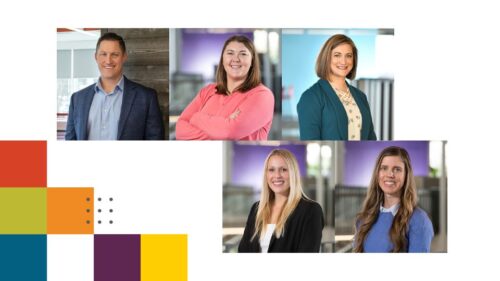Let me kick this blog off with some statistics from National Alliance on Mental Illness (NAMI):
- 1 in 5 U.S. adults experience mental illness each year.
- 1 in 25 U.S. adults experience serious mental illness each year.
- 1 in 6 U.S. youth aged 6-17 experience a mental health disorder each year.
- 50% of all lifetime mental illness begins by age 14, and 75% by age 24.
- Less than 45% people with mental illness seek treatment, and only approximately 65% of people with serious mental illness seek treatment.
- People with depression have a 40% higher risk of developing cardiovascular and metabolic diseases than the general population.
- 3% of U.S. adults with mental illness also experienced a substance use disorder in 2018 (9.2 million individuals).
I share these numbers to shine light on the realities of mental health conditions.
There’s no doubt you probably know someone who struggles from some type of mental wellbeing issue…maybe it’s even you. If it is, know you’re not alone, and that it’s OK to not be OK!
Mental Illness Awareness Week
In fact, mental health is such a prevalent issue that since 1990, the first week of October every year (the very week we’re in right now) has been designated by Congress as Mental Illness Awareness Week. The week is sponsored by NAMI.
For 2020, the week’s theme is “What People with Mental Illness Want You to Know.” As part of this, NAMI hopes to empower people living with mental illness to share their stories and testimonials to teach acceptance and understanding. These testimonials provide personal stories of hope, help, and recovery. The stories are engaging, memorable, and compelling and, therefore, very effective at reducing stigma and unblocking barriers to care.
Mental Illness Defined
Before I go any further, I think it’s important everyone understand exactly what mental illness is to avoid any misperceptions or the stigma I just mentioned.
According to the NAMI website, “mental illness is a condition that affects a person’s thinking, feeling, or mood. Such conditions may affect someone’s ability to relate to others and function each day.”
NAMI teaches that mental illnesses are diseases of the brain. As a result, each person will have different experiences (and different treatments) — even people with the same diagnosis.
Breaking the Stigma of Mental Health Issues
Unfortunately, the stigma surrounding mental issues often keeps people from seeking or accepting help. We want this to stop! As I said earlier, it’s important for everyone to know that it’s OK to not be OK.
As part of our work to help break the stigma, we’ve begun to tackle this issue head on in the industry. The first is simply by just understanding the numbers. Millions of people in the U.S. are affected by mental illness each year. It’s important to measure how common mental illness is, so we can understand its physical, social, and financial impact — and so we can show that no one is alone. These numbers are also powerful tools for raising public awareness, stigma-busting, and advocating for better health care.
Secondly, below are couple of resources I’d like to share:
- Webinar — Holmes Murphy’s Sr. Clinical Consultant Leia Spoor and I presented a webinar titled Mental Health, Depression & Stigma Ending in Construction for the American Psychiatric Association’s Center for Workplace Mental Health.
- Article — Leia and I also co-authored an article in Construction Executive magazine titled Understanding and Addressing Depression in the Workplace.
Tools for Organizations to Use
I think it’s important for all organizations to better understand how to tackle depression and other mental health conditions affecting their workforce and dependents enrolled in health benefit plans. Here are a few tools you may find useful:
Depression Cost Calculator
This tool uses a wealth of the latest research to model how depression impacts a company or organization, based on just a few key demographics.
Right Direction for Me
This is a national campaign with free downloadable resources for employers or individuals/families.
Mental Health Screening Tools
Online screening is one of the quickest and easiest ways to determine whether you are experiencing symptoms of a mental health condition. The Mental Health America website offers free and anonymous screening tools.
Additionally, MindWise Innovations is a program that’s also anonymous and confidential, and immediately following the brief questionnaire you will see your results, recommendations, and key resources.
We’re Here to Help!
I’m proud to work for a CSDZ, a Holmes Murphy Company, and the fact that we’re at the forefront of leading the charge in normalizing and addressing workplace mental health.
Mental health and wellbeing can impact Property Casualty insurance exposures and controls, such as those for Workers’ Compensation and General Liability. The combined Holmes Murphy family of companies have significant experience and expertise in the areas of mental health and wellbeing, including our colleagues in Employee Benefits, Responder Health, Joyages, and ethOs.
Don’t hesitate to reach out to us you have questions or need help!







